Stocks rally for a second day as hopes grow for a debt ceiling resolution
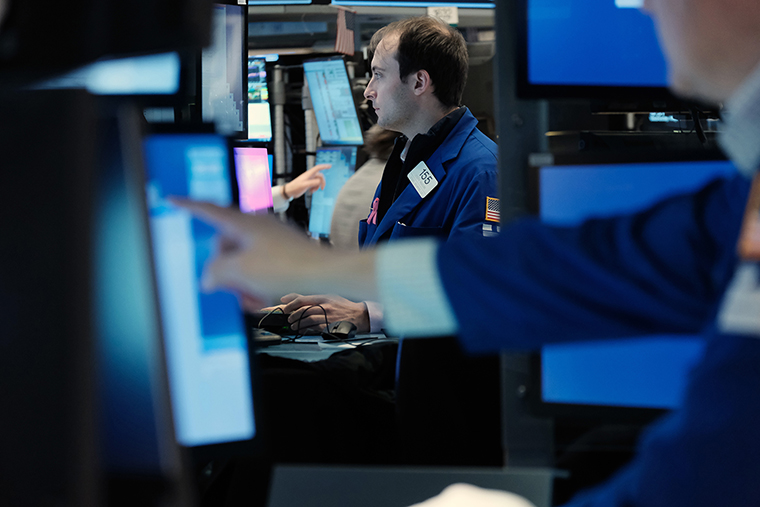
Stocks rose Thursday as investors grew more optimistic that the United States will not default on its debt, even as the president and congressional leaders still have not reached a deal to raise the country’s debt ceiling.
House Speaker Kevin McCarthy on Thursday sounded upbeat on the direction of debt limit talks with the White House.
“It would be important to try to have the agreement, especially in principle, by some time this weekend,” he told CNN’s Manu Raju. “We are not there, we haven’t agreed to anything yet, but I see the path.”
The 2-year Treasury yield rose to 4.27% after Dallas Federal Reserve President Lorie Logan said that current inflation data does not warrant an interest rate pause in June, though she added that could change in the coming weeks.
Regional bank shares were mixed. PacWest Bank shares gained about 5% and Western Alliance rose about 1%. New York Community Bank shares lost 1.8% and KeyCorp fell 1.3%. Still, the SPDR S&P Regional Banking exchange-traded fund rose 0.7%.
Shares of Netflix climbed 9.2% after the streaming giant said it had 5 million monthly active users for its ad-supported tier.
Bath & Body Works shares gained 10.8% after the company beat top- and bottom- line expectations and raised its earnings forecast for the year.
Meanwhile, mortgage rates ticked up slightly after falling for two weeks.
The Dow added 115 points, or 0.3%.
The S&P 500 gained 0.9%.
The Nasdaq Composite increased 1.5%.
As stocks settle after the trading day, levels might still change slightly.
Dow falls over 170 points Thursday
The Dow fell about 172 points, or 0.5%, early Thursday afternoon.
Procter & Gamble shares fell about 2% after Truist downgraded the stock, citing concerns that the defensive stock is unlikely to see much more upside.
Shares of UnitedHealth Group, Chevron, Walgreens Boots Alliance and Goldman Sachs each slid over 1%, contributing to the blue-chip index’s declines.
The S&P 500 rose 0.2% and the Nasdaq Composite gained about 0.8%.
Fed’s Bullard and Logan: Inflation isn’t cooling fast enough
From CNN’s Bryan Mena

Two Federal Reserve officials expressed concerns on Thursday that inflation isn’t cooling fast enough, throwing some cold water at the idea that the Fed could pause rate hikes in June.
Federal Reserve Bank of Dallas President Lorie Logan said at a banking conference in Texas that she hasn’t seen enough evidence that inflation is on track to fall to the central bank’s 2% target.
“I’m keeping an open mind and a close watch on economic developments as we head toward the next meeting in mid-June. As of today, though, I remain concerned about whether inflation is falling fast enough,” she said.
The Consumer Price Index rose 4.9% in April from a year earlier, just slightly down from the 5% rise in March. Officials have expressed worries that core inflation, which strips out volatile food and energy prices, is not falling fast enough. That measure also declined slightly in April.
Logan is a voting member of the Fed committee that decides interest rates and has staked out a centrist stance — in between hawkish and dovish.
Federal Reserve Bank of St. Louis President James Bullard also expressed a similar sentiment on Thursday in an interview with the Financial Times.
“I do expect disinflation, but it’s been slower than I would have liked, and it may warrant taking out some insurance by raising rates somewhat more to make sure that we really do get inflation under control,” said Bullard, who isn’t voting member.
The Fed raised interest rates by a quarter point earlier this month to move up its benchmark lending rate range to 5-5.25% and signaled a pause in future meetings.
Fed officials meet again in mid June after the release of fresh labor market data earlier that month and the latest CPI inflation report just one day prior to their decision announcement.
Warren slams regulator who signed off on JPMorgan’s bid for First Republic
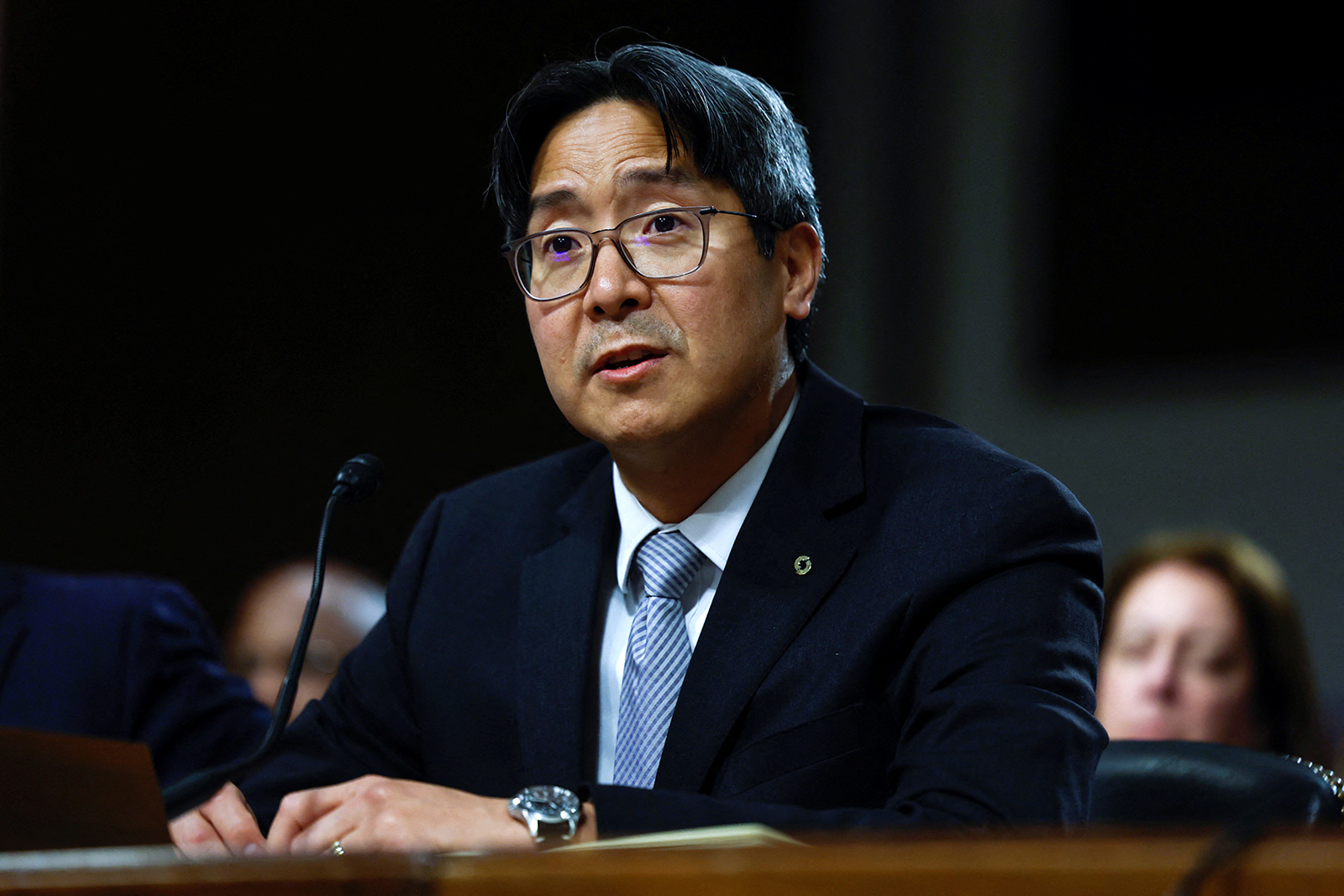
Democratic Sen. Elizabeth Warren pressed Michael Hsu, Acting Comptroller, Office of the Comptroller of the Currency, for answers on why he allowed the nation’s largest bank, JPMorgan Chase, to take over collapsed First Republic Bank.
As Warren pointed out, when a bank fails, the government is obligated to find the least costly resolution. This solution must minimize the funds depleted from the Federal Deposit Insurance Corporation’s Deposit Insurance Fund and quickly restore confidence in the banking system.
But the OCC, which in addition to the FDIC has to approve failed bank acquisitions, is required to evaluate whether it “would result in a material increase in risks to financial system stability due to an increase in size of the combining institutions.”
Banks are assigned a score that encapsulates how large they are and therefore the risk they pose to the overall financial system if they collapse. The score helps determine which banks are too big to fail and would require costly bailouts in that event.
Several banks that made bids for First Republic had significantly lower scores than JPMorgan yet they weren’t selected, Warren said.
Hsu defended the decision, saying: “I fear that there would have been greater financial instability that weekend” if the agency had followed a strict banking score methodology.
Fed’s Barr: “I accept full responsibility” for supervisory failures
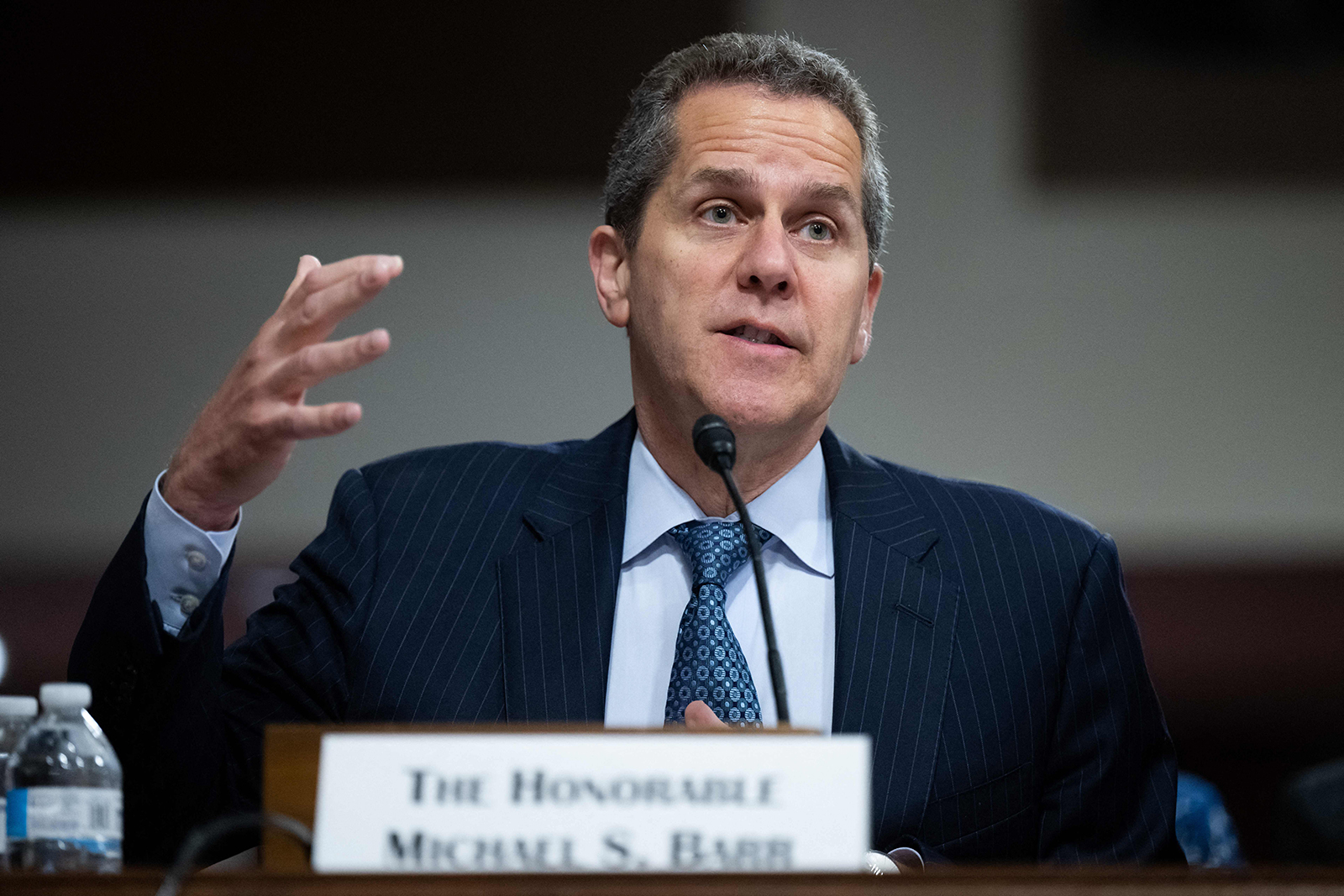
After Republican Sen. Tim Scott accused banking regulators of shifting the blame to their predecessors, Michael Barr, the Fed’s vice chair for supervision, said “I accept full responsibility” for supervisory failures.
“The buck stops here,” Barr said.
But he admitted that no one at the Fed had been fired after a review he led found banking supervision fell short of what was needed to protect a bank run.
Economic barometer declines for 13th consecutive month
The Conference Board’s Leading Economic Index, a comprehensive gauge of the US economy’s health, dropped for the 13th straight month in April, according to data released Thursday.
The index fell 0.6% last month to 107.5, continuing its yearlong stretch of declines. The LEI is down 4.4% in the six months between October 2022 and April 2023, representing a sharper rate of decline than the 3.8% drop from the prior six-month period, according to the Conference Board.
The decline was in line with economists’ expectations, according to consensus estimates on Refinitiv.
The index continues to warn of worse economic times ahead and a downturn to occur in the coming months, noted Justyna Zabinska-La Monica, the Conference Board’s senior manager of business cycle indicators.
The Conference Board forecasts that economic activity will contract this quarter and lead to a mild recession by the middle of the year.
“Weaknesses among underlying components were widespread — but less so than in March’s reading, which resulted in a smaller decline,” Zabinska-La Monica wrote in a statement. “Only stock prices and manufacturers’ new orders for both capital and consumer goods improved in April.”
Stocks turn higher on cheery earnings and debt ceiling resolution hopes
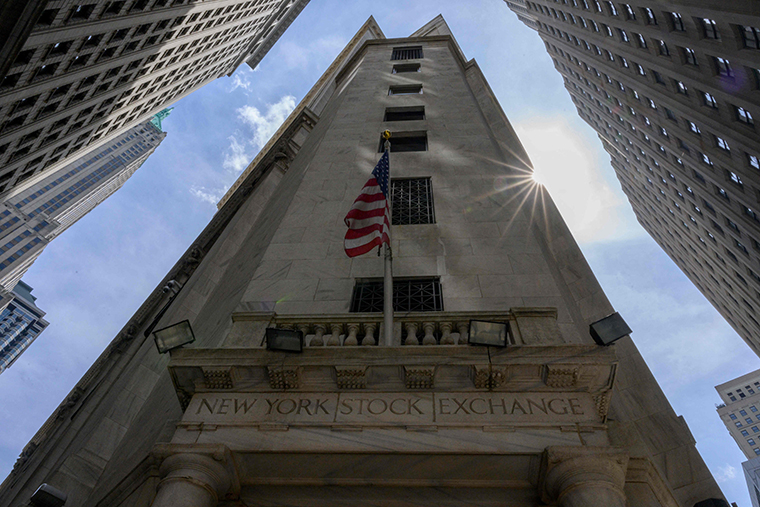
Stocks rose by mid-morning on Thursday, reversing earlier losses as cheery corporate earnings reports and optimism about the debt ceiling crisis helped lift the market.
The S&P 500 rose 0.5%, the Dow rose 0.07% and the Nasdaq Composite gained 0.9%.
Take-Two Interactive Software shares gained 11.6% after the video game firm on Wednesday reported better-than-expected revenue for its latest quarter and hinted at the timeline for several video games releases.
Bath & Body Works shares rose about 9% after the company beat top- and bottom- line expectations and raised its earnings forecast for the year.
Shares of Walmart rose 1.9% after the retail bellwether reported strong sales for its latest quarter and raised its full-year outlook.
Sen. Scott to banking regulators: “You did not use the tools in the toolbox”
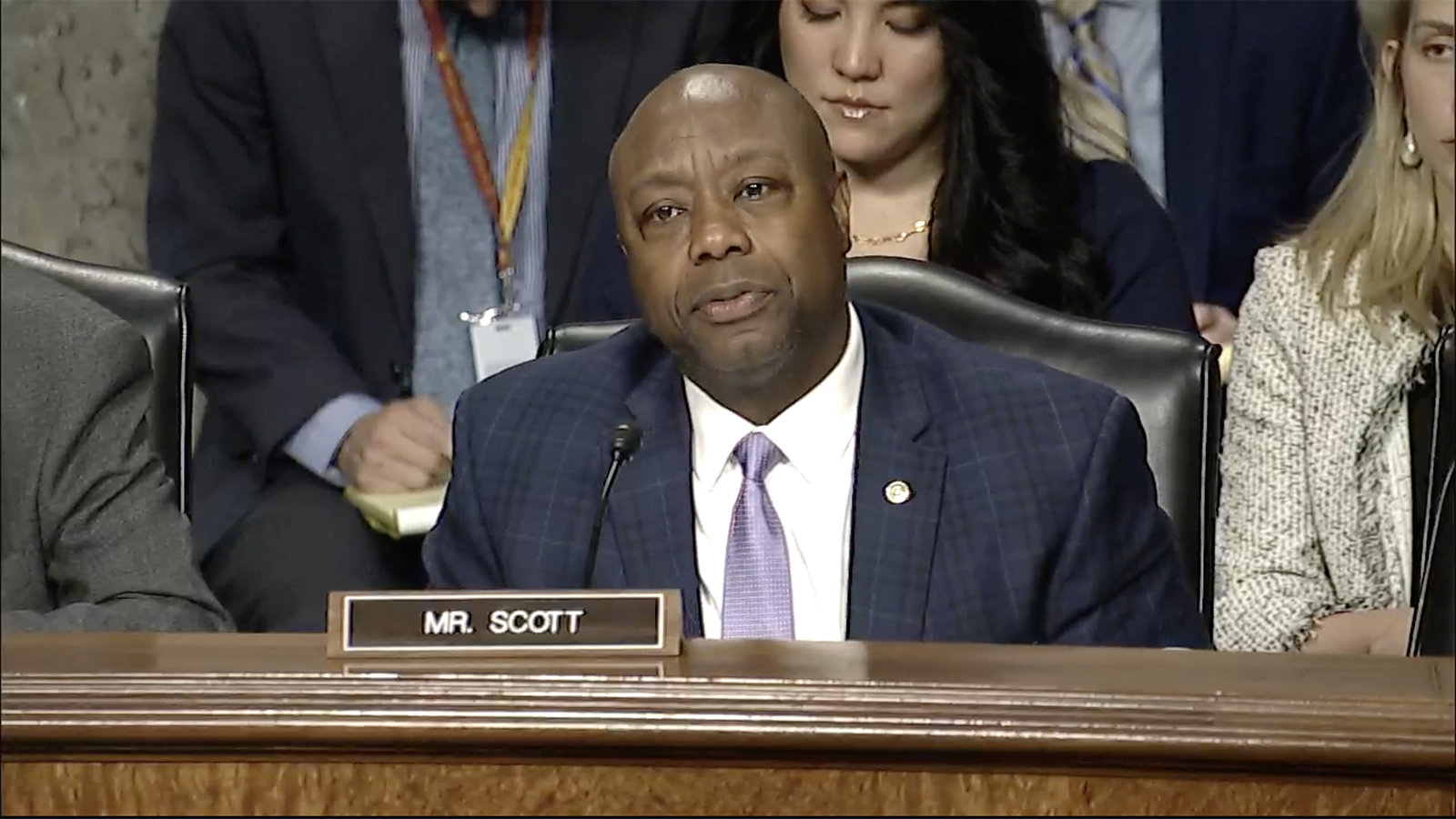
The blame game continues on Capitol Hill Thursday morning, as the Senate Banking Committee kicks off its hearing with banking regulators.
Democrats are poised to renew calls for putting in place tougher capital and liquidity requirements on banks.
Republican Sen. Tim Scott disputed arguments that regulation wasn’t sufficient for the failed banks, telling regulators: “You did not use the tools in the toolbox to do the job that was necessary.”
Instead, he said, supervisors ignored clear warning signs from banks and should be held accountable.
Americans who distrusted banks before the crisis are likely to suffer even more from it, he added.
US home sales fell in April for the second month in a row
US home sales fell in April for the second month in a row, according to a National Association of Realtors report released Thursday. Sales had shown some life, rising in February after a full year of declines due to surging mortgage rates, but that momentum has since cooled.
In April, sales of existing homes — which include single-family homes, townhomes, condominiums and co-ops — dropped 3.4% from March. Annually, sales were down 23% from a year ago and the seasonally adjusted annualized sales pace dropped from 5.57 million units a year ago to 4.28 million in April.
April’s falling sales showed that February’s reversal — which ended the longest streak of month-to-month declining home sales on record, going back to 1999 for all homes — did not take off.
“Home sales are bouncing back and forth but remain above recent cyclical lows,” said Lawrence Yun, NAR’s chief economist. “The combination of job gains, limited inventory and fluctuating mortgage rates over the last several months have created an environment of push-pull housing demand.”
Stocks mixed Thursday as investors worry about the debt ceiling and economic outlook
Stocks were mixed Thursday as investors continued to hope for a resolution on the debt ceiling crisis and digested hawkish Federal Reserve commentary.
Wall Street was hopeful that President Joe Biden and GOP lawmakers would reach a deal to raise the debt ceiling after both parties said Wednesday that a default is unlikely to happen.
But worries are mounting as the US draws closer to its early June X-date, which is when the government is expected to run out of cash.
Meanwhile, Dallas Fed President Lorie Logan said Thursday that while upcoming data could indicate to the central bank that a rate pause is warranted in June, there hasn’t yet been a significant enough slowdown in inflation.
Futures traders see a roughly 36% chance that the Fed raises interest rates at its next meeting in June, according to the CME FedWatch Tool.
Crude oil prices edged lower on worries about the economic outlook. West Texas Intermediate, the US benchmark, fell to roughly $72 a barrel.
Jobless claims fell more than expected for the week ended May 13, remaining below historical averages.
Meanwhile, Treasury Secretary Janet Yellen is set to meet with a group of bank chief executives this afternoon, including JPMorgan Chase’s Jamie Dimon, Citigroup’s Jane Fraser and Bank of America’s Brian Moynihan.
Federal regulators are also set to testify before the Senate Banking Committee on Thursday morning about the state of financial stability and supervision following the collapses of three regional banks.
Walmart shares rose 2.1% after the company reported strong sales for its latest quarter and raised its outlook for the year, briefly cheering investors looking for signs of a strong consumer from the retail bellwether.
The Dow fell 85 points, or 0.3%.
The S&P 500 slid 0.9%.
The Nasdaq Composite rose 0.1%.
Latest weekly jobless claims fall to 242,000
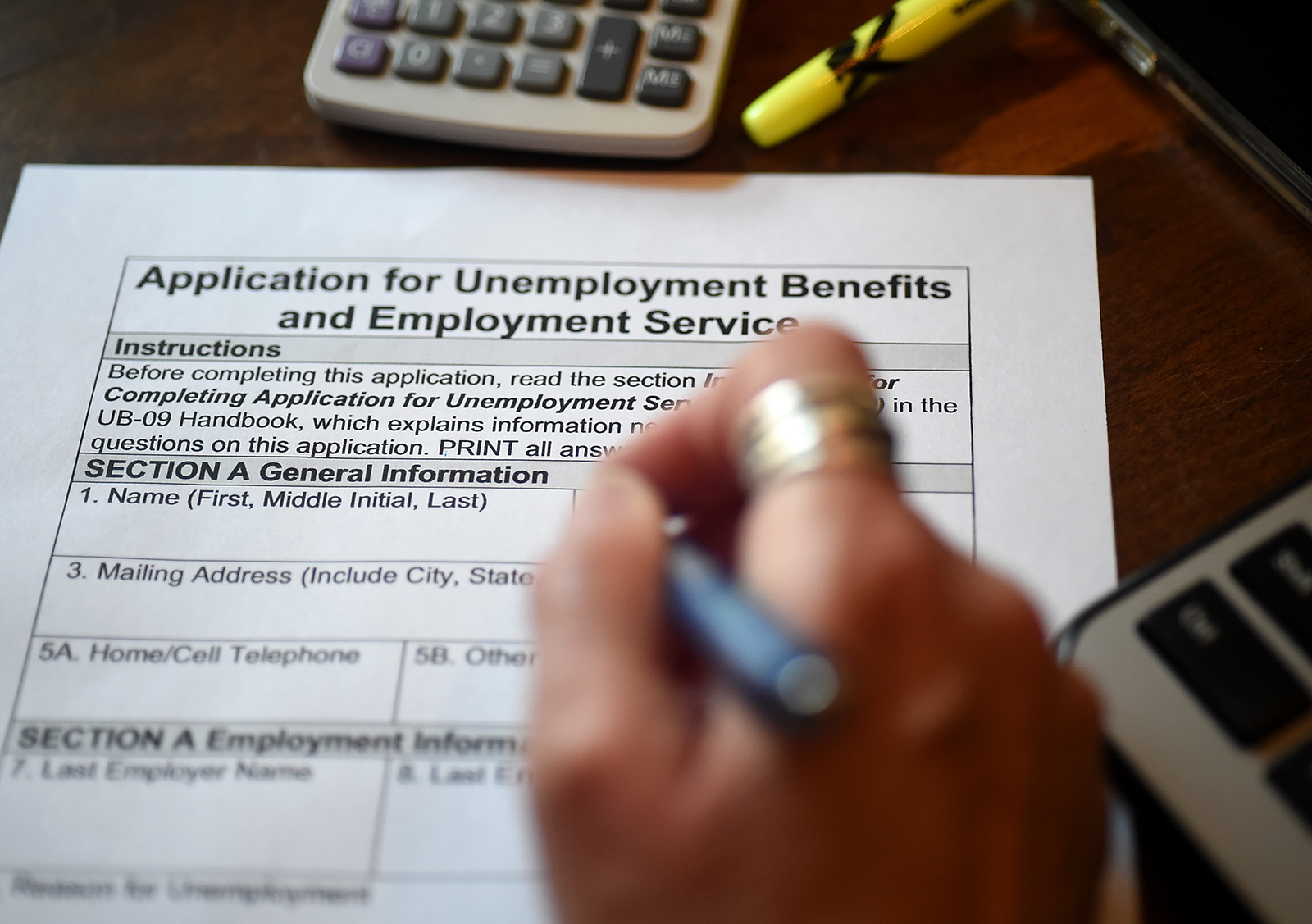
First-time applications for unemployment insurance fell to 242,000 for the week ended May 13, according to data released Thursday by the Department of Labor.
Economists were expecting 254,000 in initial claims, according to Refinitiv.
Continuing claims, which are filed by people who have received unemployment benefits for more than one week, ticked down to 1.799 million for the week ended May 6. Economists were expecting 1.818 million, according to Refinitiv.
Weekly jobless claims remain below historical averages: In the decade before the pandemic, weekly claims averaged 311,000.
Bank CEOs to meet Janet Yellen
From CNN’s Matt Egan
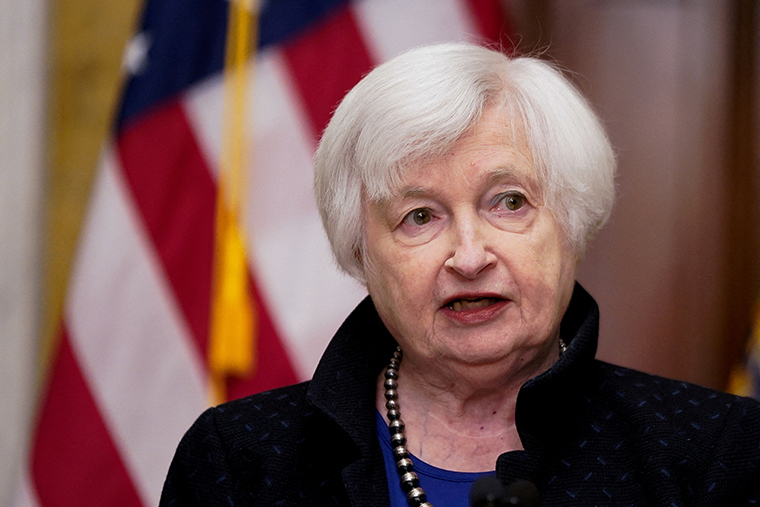
The debt ceiling is very likely to be front and center at a meeting this afternoon in Washington between Treasury Secretary Janet Yellen and the board of the Bank Policy Institute, an industry trade group.
As CNN previously reported, the meeting is expected to include JPMorgan Chase CEO Jamie Dimon, Citigroup CEO Jane Fraser, Bank of America CEO Brian Moynihan and other executives.
The banking crisis — and the regulatory response — is also likely to be a focus.
Deputy Treasury Secretary Wally Adeyemo met with the bankers on Wednesday to discuss the “urgent need” to address the debt ceiling, according to a Treasury readout.
Analysis: Debt ceiling threat: Time to take this political football off the field
From Christine Romans, CNN Chief Business Correspondent
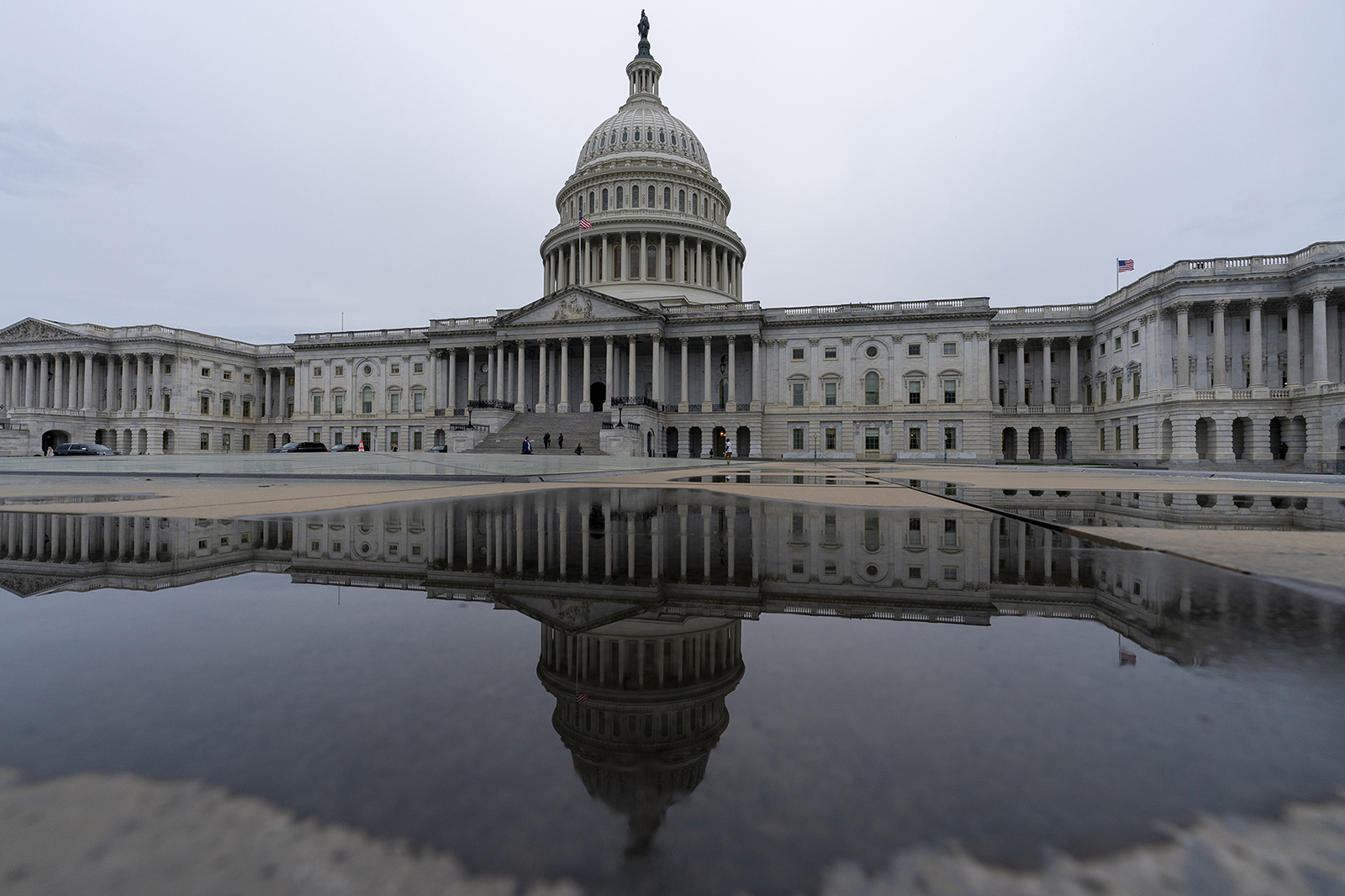
Alarm and frustration grow by the day over the debt-ceiling stalemate gripping Washington. On the line: American living standards, family budgets, and stability in the global financial system.
In theory, the debt ceiling should act as a fiscal restraint during the budgeting process. But after near meltdowns in 2011, 2013 and again today, many argue it’s time to take the political football off the field. The time for tax and spending choices by Congress is through the normal course of business. Deciding later not to pay the bills by not raising the debt ceiling is not sound fiscal policy.
Treasury Secretary Janet Yellen, a Democrat, has testified to Congress she would like it gone.
Federal Reserve Chairman Jerome Powell, a Republican, has said the debt ceiling is counterproductive.
And the CEO of the nation’s biggest bank, JPMorgan Chase’s Jamie Dimon turns visibly frustrated at the subject of the debt ceiling. He reiterated last week to Bloomberg News, “I would love to get rid of the debt ceiling.”
“There was, I think, reasonably good intent, you know, when this was first put on the books over 100 years ago to force lawmakers to come together and figure out how to make sure that the government’s fiscal situation is on sound ground, but that’s not what’s happening now,” Moody’s Analytics Chief Economist Mark Zandi told CNN’s Early Start. “It’s just creating all kinds of havoc,” he said.
It’s an almost universal view on Wall Street and in economics.
Senate Banking Committee to grill regulators over bank failures
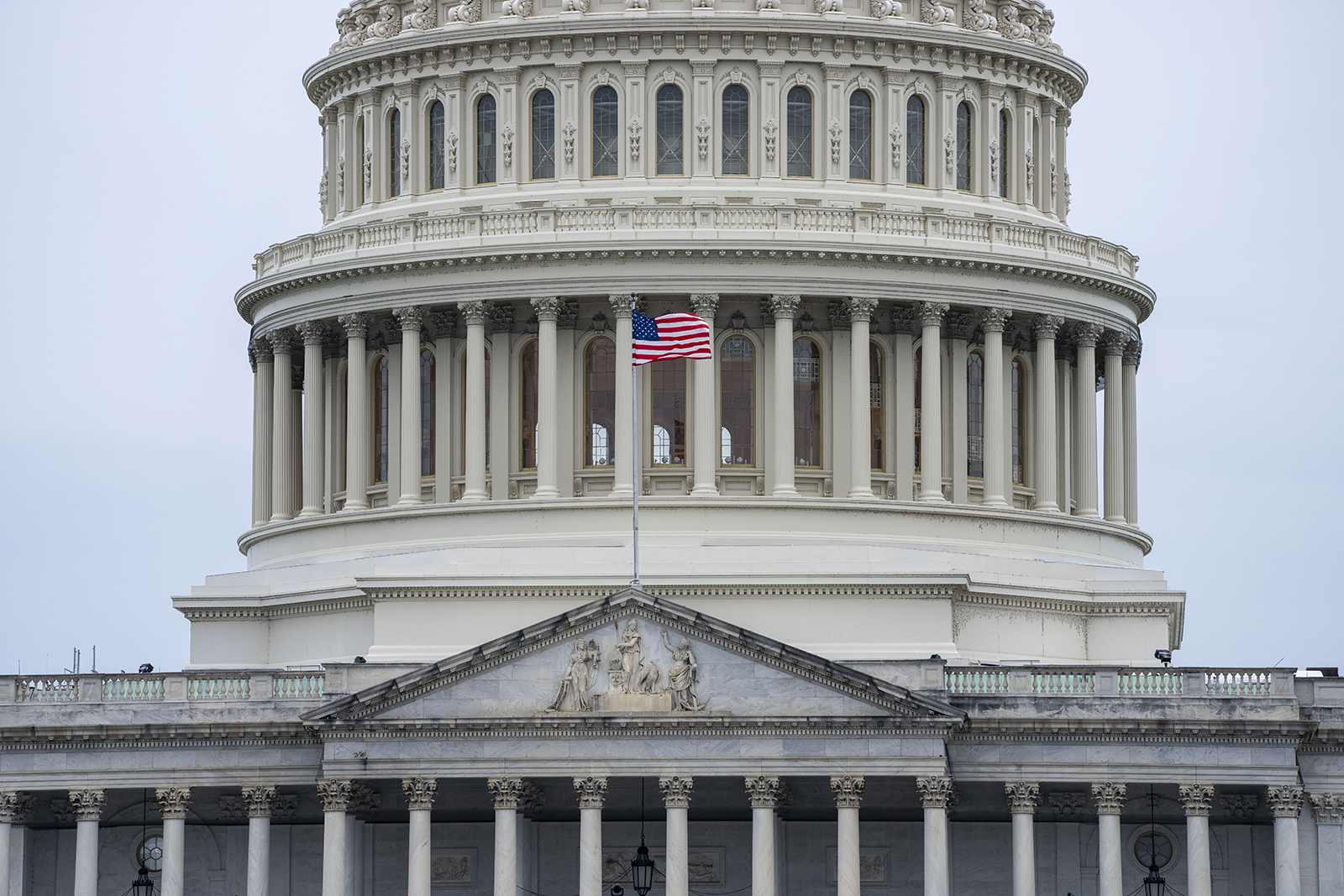
The Senate Banking Committee will hear from federal regulators Thursday in a 9:30 a.m. hearing to address failed banks.
Witnesses include FDIC Chair Marty Gruenberg, Federal Reserve Vice Chair Michael Barr and OCC acting Comptroller Michael Hsu, as well as Clothilde Hewlett, a regulator from California’s financial protection department.
Earlier this week, lawmakers on the committee were unusually united in their contempt for the way former banking executives Greg Becker of SVB and Scott Shay and Eric Howell of Signature failed to mitigate risks and raked in millions in compensation while their banks imploded.
Manhattan rents reach (another) record high
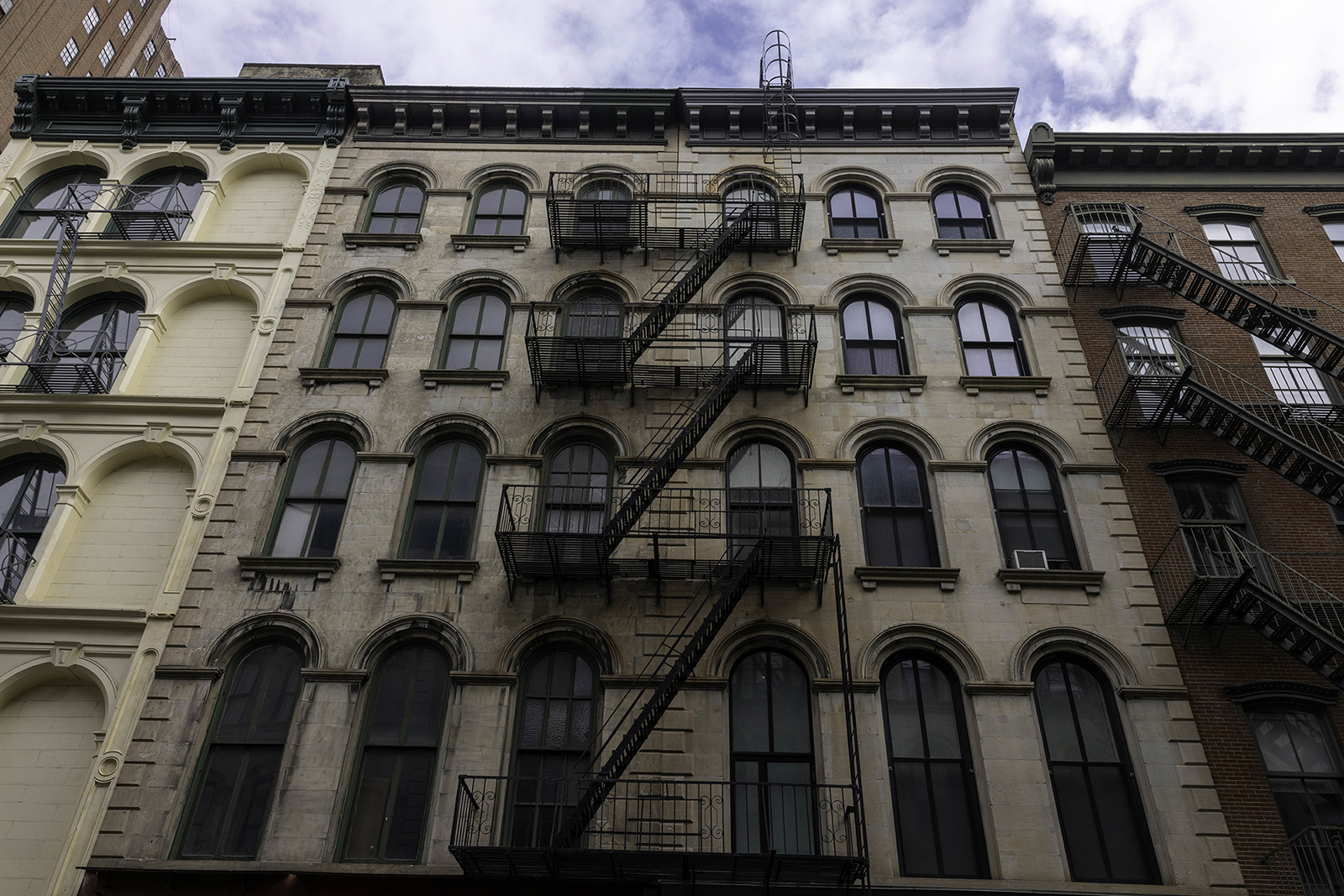
While rents are cooling in some parts of the United States, the cost to rent a Manhattan apartment hit a record high for the second month in a row.
Typically, rental activity builds from the spring to a peak in late summer, but median rent last month was the highest on record, according to a report from Douglas Elliman, a brokerage, and Miller Samuel, an appraisal and consultant firm.
The median cost of renting an apartment in Manhattan was $4,241 in April. That’s up 8% from a year ago and up 1.6% from March, when rents hit a record high of $4,175.
A one-bedroom apartment had a median rent of $4,200, up 5% from last year; while a two-bedroom apartment had a median rent of $5,500, up 11% from a year ago. A studio apartment rents for a median price of $3,235, up 13.5% from last year.
The Manhattan rental market is continuing to trend slightly better than sideways, said Jonathan Miller, president and CEO of Miller Samuel.
Not only are median rental prices going up, but the amount of concessions — or incentives offered by landlords — are dropping. In April, concessions paid by landlords fell to their lowest level since November 2019.
Listing inventory in Manhattan expanded annually, but remained more than 10% below the decade average for April.
But the data suggests that more renters are opting to stay put, given rental prices, with the number of new leases dropping sharply. New leases of apartments were down 20% from March and down 14% from a year ago.
“The drop in new leases indicates that there is a sharp increase in lease renewals,” said Miller. “It means the tenant consumer has accepted that we’re not going to see any improvement in affordability in the near term. They are signing renewals instead of testing the market trying to find better opportunities.”
Many renters are looking for when rental prices will actually go down.
“The only real answer to that seems to be a recession,” said Miller. “Economists have been calling for a recession for two years. Given the current state of the market, it doesn’t seem to be anything people are expecting any time soon.”
Miller said more record-high prices are to be expected between now and late summer when lease prices and leasing volume both tend to peak.
“Not necessarily every month, but we could see several more months with record-setting median rental prices,” said Miller. “If we don’t see some economic event that would change that course.”
Stocks closed higher Wednesday amid hopes of debt ceiling deal
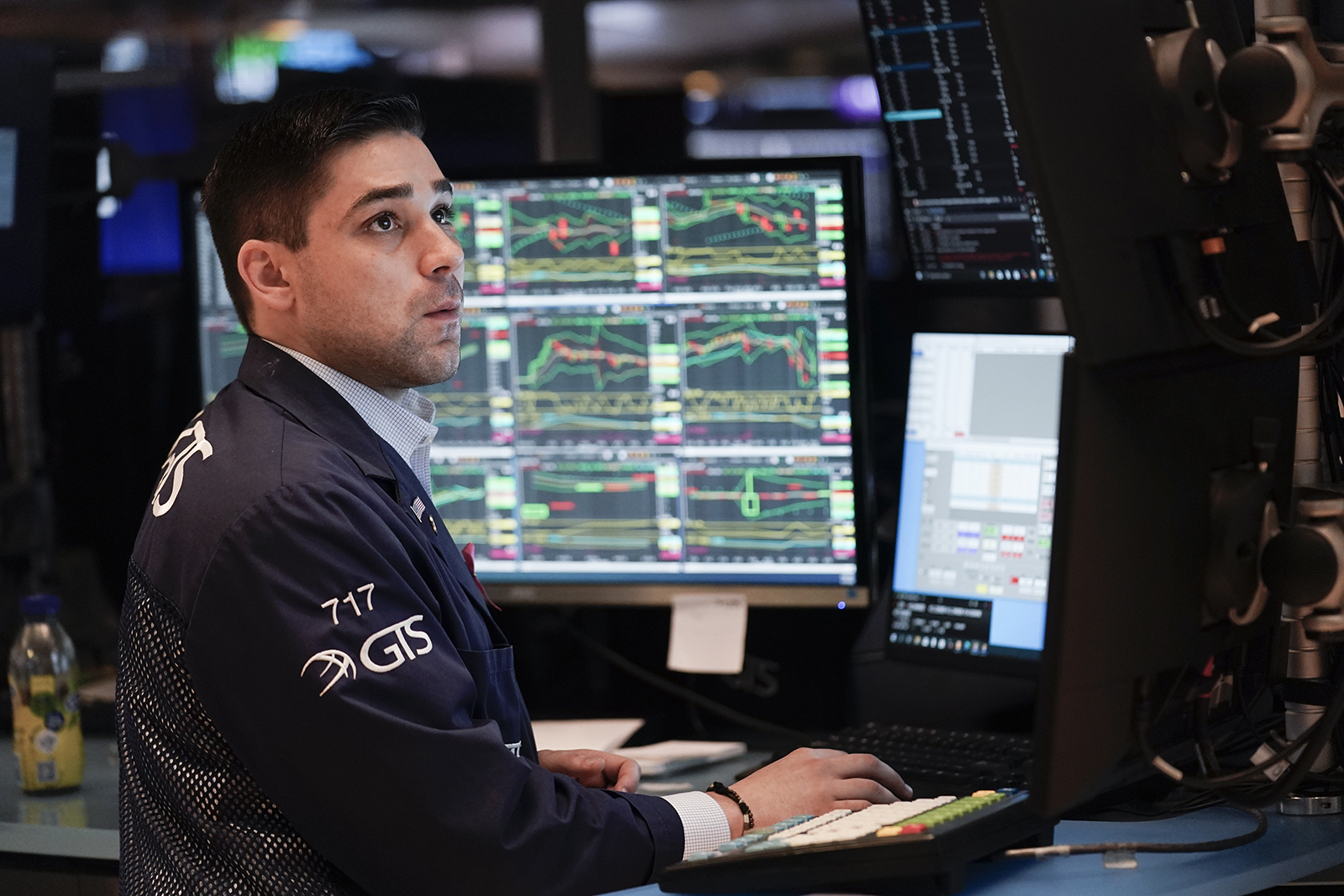
Stocks surged Wednesday amid hope that a debt ceiling deal will be reached.
All three major indexes are on pace to gain for the week.
President Joe Biden said Wednesday: “I think you can be confident that we’ll get the agreement,” adding that he will be “in constant contact” with his team during his travel abroad to Japan.
The 2-year Treasury yield rose to 4.15%, up from Tuesday’s close of 4.07%, as investors grew optimistic that a debt ceiling deal will be reached before the estimated X-date in June, when the United States could default on its debt.
Traders also expressed more confidence in the stability of the banking sector, with shares of bank stocks popping after Western Alliance said Tuesday that deposits grew by more than $2 billion between March 31 and May 12 to around $50 billion, up from $46.7 billion as of the end of last quarter.
Western Alliance shares added 10.2%, PacWest surged 21.7% and KeyCorp gained 8.6%. JPMorgan Chase shares rose 3.1% and Wells Fargo advanced 5.4%.






